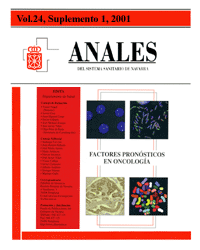Basic concepts in the molecular biology of cancer. Genetic susceptibility
DOI:
https://doi.org/10.23938/ASSN.0432Keywords:
Biología Molecular. Genética. Cáncer. Susceptibilidad genética.Abstract
Profound changes brought about by discoveries in molecular biology may enable us in the future to treat cancer without causing late effects or to prevent cancer altogether. Even before that comes about, the age of molecular medicine has arrived. Molecular biology is the study of biological processes at the level of the molecule. A major aspect of molecular biology is molecular genetics, the science that deals with DNA and RNA. Most of the progress in molecular biology has been made in the second half of the 20th century. Each discovery or technological innovation has built on previous discoveries and paved the way for the next, culminating in the current effort to map, sequence, and understand the functions of the entire human genome. In the past 20 years, many pieces of the cancer puzzle have been found, showing us how the normal cellular control mechanisms go awry to cause cancer and setting the stage for genetic testing and disease treatment. Some cancer-associated genes may be altered as a consequence of endogenous mutagens, germ-line mutations, spontaneous mutations that occur during cell replication or increased genetic instability in precancerous cells. Recent advances in molecular biology and genetics have provided new tools and concepts for studying the causes of cancer.Downloads
Downloads
Published
How to Cite
Issue
Section
License
La revista Anales del Sistema Sanitario de Navarra es publicada por el Departamento de Salud del Gobierno de Navarra (España), quien conserva los derechos patrimoniales (copyright ) sobre el artículo publicado y favorece y permite la difusión del mismo bajo licencia Creative Commons Reconocimiento-CompartirIgual 4.0 Internacional (CC BY-SA 4.0). Esta licencia permite copiar, usar, difundir, transmitir y exponer públicamente el artículo, siempre que siempre que se cite la autoría y la publicación inicial en Anales del Sistema Sanitario de Navarra, y se distinga la existencia de esta licencia de uso.








